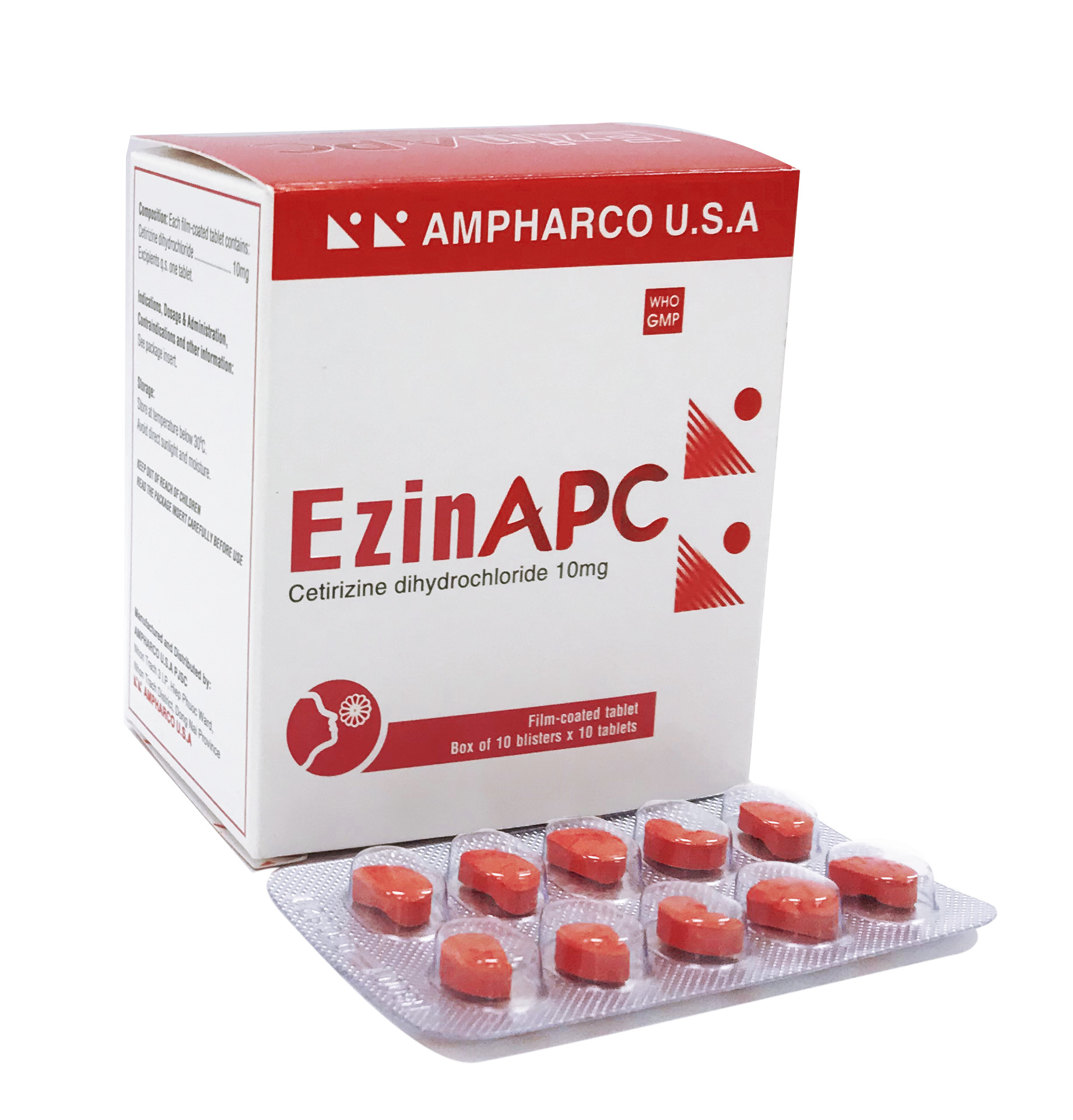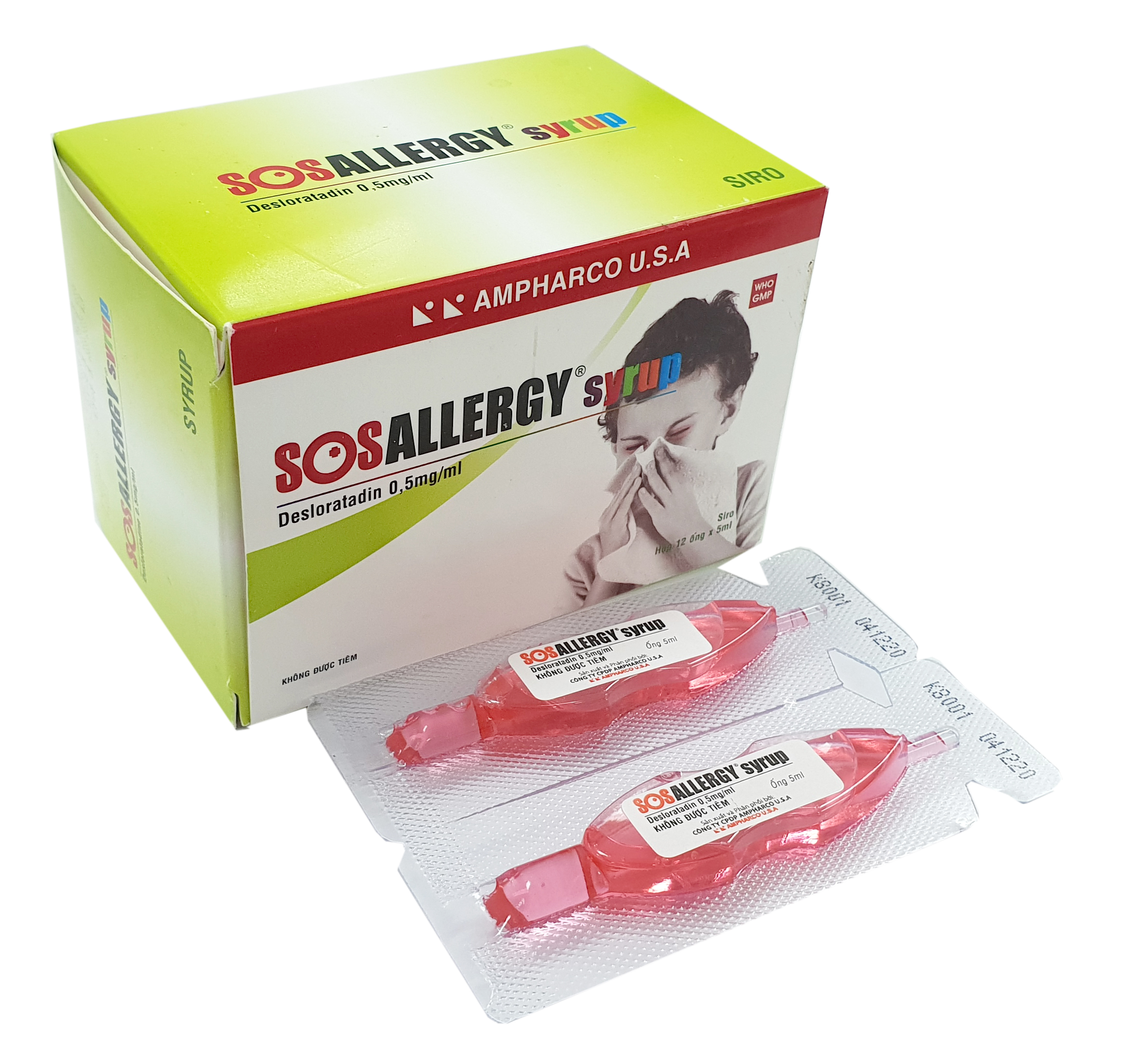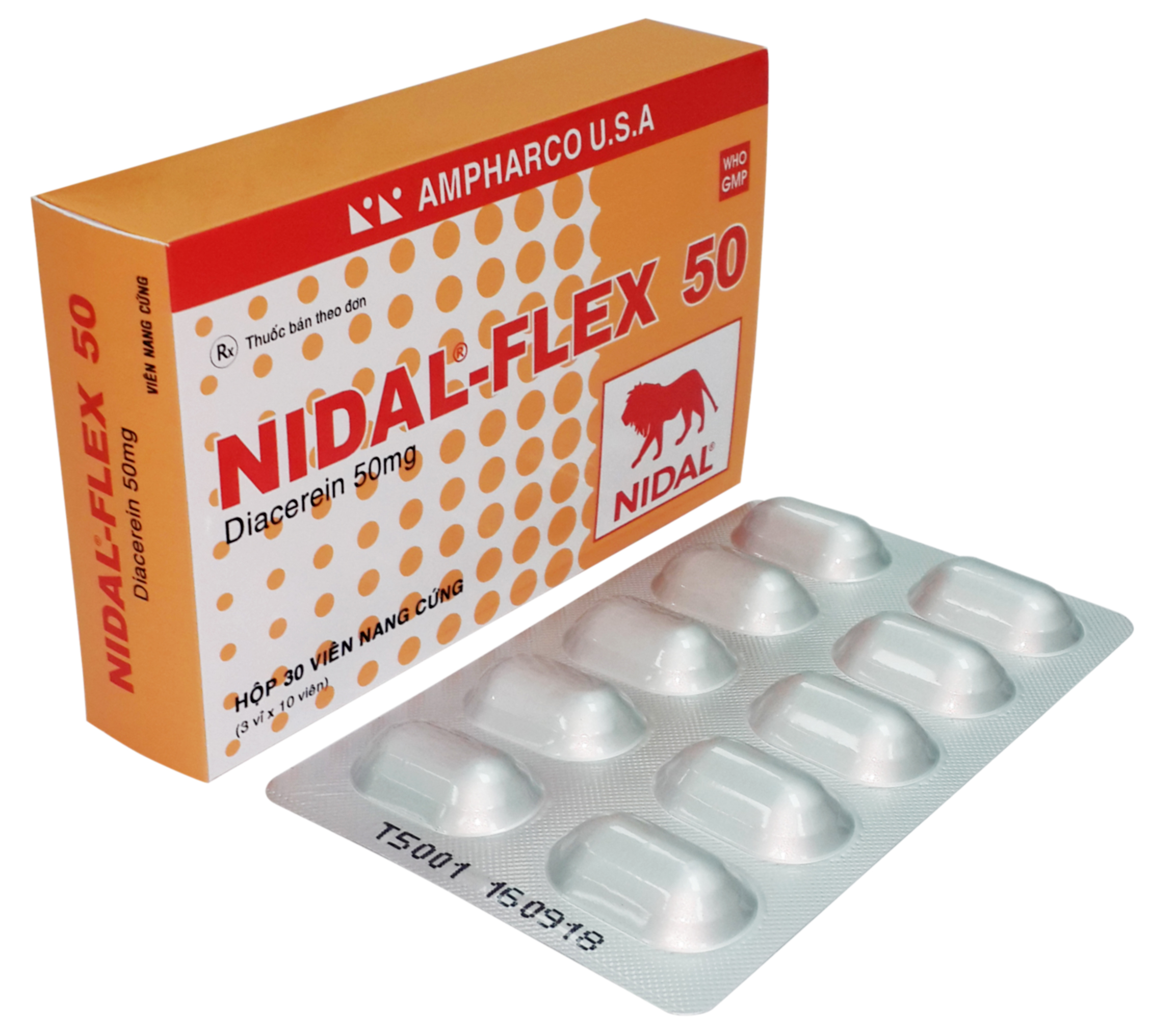Diacerein should only be used to treat symptoms of osteoarthritis of the hip or knee, with slow-acting.
Treatment with diacerein is not recommended in patients with rapidly progressive hip osteoarthritis, as they may have a weaker response to diacerein.
Specifications
NIDAL®-FLEX 50
COMPOSITION: Each hard capsule contains:
Diacerein................................................. 50 mg
Excipients: Mannitol, Croscarmellose sodium, Magnesium stearate, Colloidal anhydrous silica, Purified water q.s. one hard capsule.
INDICATIONS
Diacerein should only be used to treat symptoms of osteoarthritis of the hip or knee, with slow-acting.
Treatment with diacerein is not recommended in patients with rapidly progressive hip osteoarthritis, as they may have a weaker response to diacerein.
DOSAGE AND ADMINISTRATION
Treatment with diacerein should be initiated by specialists experienced in the treating of osteoarthritis.
As some patients may experience loose stools or diarrhea, the recommended starting dose is 50 mg once daily with evening meal for the first 2 to 4 weeks of treatment. After this period the recommended daily dose is 50mg twice daily. The treatment should be taken with food (one with breakfast and the other with evening meal). The capsules must be swallowed intact (without opening them) together with a glass of water.
Diacerein is not recommended in patients aged 65 years or above.
The doctor should decide the duration of treatment as a function of the outcome. However this should not be less than 6 months.
Due to its late onset of action (after 2-4 weeks of treatment), diacerein may be associated with a non-steroidal anti-inflammatory drug or analgesic for the first 2-4 weeks of treatment.
In patients suffering from severe kidney failure (creatinine clearance less than 30ml/min), the daily dosage should be halved.
CONTRAINDICATIONS
- Hypersensitivity to diacerein or any of the excipients listed in the composition.
- Patient with current and/or history of liver disease.
WARNINGS AND PRECAUTIONS
Diarrhea: intake of diacerein frequently leads to diarrhea (see adverse drug reaction) that can consequently lead to dehydration and hypokalemia. Patients should be advised to stop diacerein treatment in case of diarrhea and contact their physician to discuss treatment alternatives.
Renal Impairment: Diacerein daily dose should be reduced by half in patients with severe renal insufficiency.
Hepatic Impairment: It is not recommended in any patient with liver disease or a history of liver disease.
Pregnancy: It is not recommended to use diacerein in pregnancy.
Lactation: Pharmacokinetics of diacerein has not been studied in lactating women and its administration is not recommended.
Pediatric use:Pharmacokinetics of diacerein has not been studied in the pediatric population and its administration is not recommended for children under 15 years.
Elderly patients: Diacerein is not recommended in patients aged 65 years and above.
As with prolonged treatment with any other medication, a complete blood test, including liver enzymes, and urinalysis should be conducted every 6 months.
Post-marketing surveillance
Hepatobiliary disorders
Cases of acute liver injury, including elevated serum hepatic enzymes and cases of hepatitis have been reported in the post-marketing phase with diacerein. Most of them occurred during the first months of treatment. Patients should be monitored for signs and symptoms of hepatic injury.
PRESENTATION: Blister of 10 hard capsules; box of 3 blisters.
Keep out of reach of children
Read the package insert carefully before use
Ask your doctor for further information
Manufactured and Distributed by: AMPHARCO U.S.A PHARMACEUTICAL JOINT-STOCK COMPANY
Nhon Trach 3 Industrial Park, Hiep Phuoc Ward, Nhon Trach District, Dong Nai Province, Vietnam
Tel: 02513 566 202 - Fax: 02513 566 203







